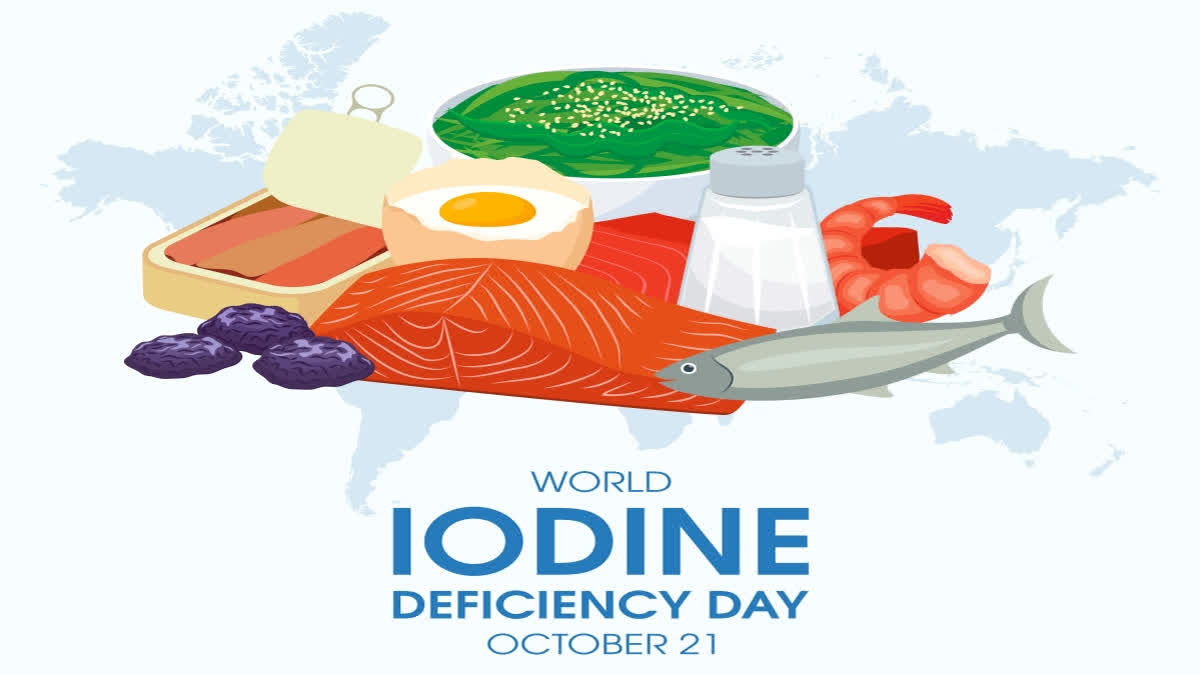Hyderabad: Global Iodine Deficiency Day is celebrated every year on October 21. The day is dedicated to raising awareness about the critical role of iodine in our health. Iodine, an essential mineral required for thyroid hormone production, plays a vital part in our bodily functions.
What Is Iodine And What Does It Do?
Iodine is a mineral found in some foods. The body needs iodine to make thyroid hormones. These hormones control the body’s metabolism and many other important functions. The body also needs thyroid hormones for proper bone and brain development during pregnancy and infancy. Getting enough iodine is important for everyone, especially infants and women who are pregnant.
History of World Iodine Deficiency Day
In 1990, various organisations came together at the World Summit for Children to pinpoint the significance of iodine and how to prevent the increasing cases of iodine deficiencies. In 2002, various organisations came up with various awareness programs and with more time, more countries started joining the cause, and it became World Iodine Deficiency Day.
A study published in the Indian Journal of Medical Research (IJMR), revealed that the whole populace of India is at high risk of IDD due to a lack of mineral iodine in the soil. This results in a spectrum of grains, lentils, fruits, vegetables, nuts and seeds and other produce cultivated in India to be deficient in iodine. No matter, what type of diet a person consumes, the total amount of iodine in it is remarkably low and necessitates the supplementation of salt fortified with iodine.
What Happens If I Don’t Get Enough Iodine?
People who don’t get enough iodine cannot make sufficient amounts of thyroid hormone. This can cause many problems. In pregnant women, severe iodine deficiency can permanently harm the fetus by causing stunted growth, intellectual disability, and delayed sexual development. Less severe iodine deficiency can cause lower-than-average IQ in infants and children and decrease adults’ ability to work and think clearly. Goiter, an enlarged thyroid gland, is often the first visible sign of iodine deficiency.
Symptoms Of Iodine Deficiency In The Body:
- Thyroid gland enlargement
- Shortness of breath while lying down
- feeling tired
- Dry skin and hair loss
- Memory loss
Causes of Iodine Deficiency:
According to the National Library of Medicine, Iodine Deficiency Disorders (IDD) are a significant global health problem, caused by iodine-poor soil leading to low iodine concentration in food and insufficient intake in the population.
Sources of Iodine:
- Milk
- Meat
- Sea Fish
- Shellfish
- Eggs
- Cereal grains
- Salt
- Yoghurt
- Sea vegetables
- Vegetables and Fruits etc.




